John Durie’s 2018 CEO Survey - part 3
John Durie asked more than 60 of the biggest names in business five key questions about what’s coming in 2019.
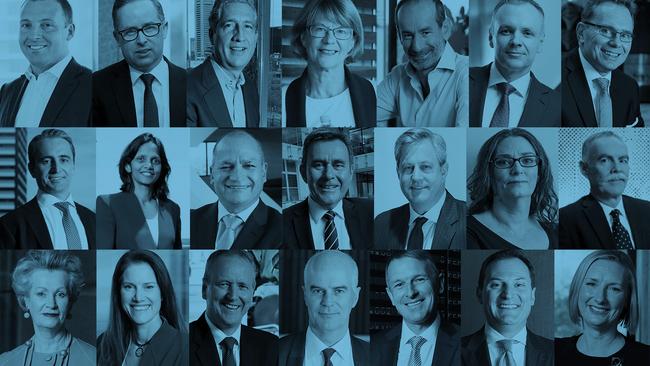
In our annual a survey of business leaders, the top executives maintained that economic growth, a national energy policy and most of all long-term stability were the key agenda items.
In the wake of the financial services royal commission, the survey revealed an almost religious devotion to customers as the route to prosperity for corporate Australia.
Delivering customers what was promised is seen as the key way to restore trust.
Business leaders are also beginning to see signs of wages growth across their workforce, particularly as labour markets tighten, although wage rises are not even distributed across the economy.
At a time when trust in big business and government is at all-time lows business chiefs want leadership from Canberra with an emphasis on bipartisan energy reforms and long-term policy to improve the economy.
These were our five big questions for 2018:
- What should be the key issues in the next federal election campaign?
- What use are you making of customer and company data and how are you collecting it?
- What are the key challenges for your company next year?
- How can big business regain community trust?
- What cost pressures are hitting your company? How are they being offset and do you see any pressure to lift wages? If so, how much?
-
Andrew Mackenzie, BHP | Lisa O’Brien, Smith Family | Mark Palmquist, Graincorp | Andy Penn, Telstra | Andrew Pike, HerbertSmithFreehills | Brett Redman, AGL | Stephen Rue, NBN | Luke Sayers, PWC | Rob Scott, Wesfarmers | Julian Segal, Caltex | Ian Silk, Australian Super | Rob Sindel, CSR | Mark Steinert,Stockland | Dominic Stevens, ASX | Catherine Tanna, Energy Australia | Andrew Thorburn, NAB | Paul Uren, JPMorgan | Richard Vincent, API | Alison Watkins, CocaColaAmatil | Shemara Wikramanayake, Macquarie | Gary Wingrove KPMG | Zoe Yujnovich, Shell
-
Andrew Mackenzie | BHP

What should be the key issues in the next federal election campaign?
The federal election is a matter for Australian citizens. However, I believe health, education, job creation and diversity and inclusion will be high on the campaign agenda. At BHP, we believe energy reliability, affordability and emissions reduction are national priorities. That households and businesses have endured protracted electricity instability brings the issue into sharp focus for everyone. Personally, I believe indigenous Australians must have a greater role in the national discussion about their future and the future of this country.
What use are you making of customer and company data and how are you collecting it?
We supply commodities used by billions of people every day and use on-the-ground analysis and consumer trends studies to predict future demand. For example, the adoption rate of electric vehicles will impact copper demand as they use four times more copper than conventional engine vehicles.
What are the key challenges for your company next year?
Safety will always be the key priority for our company. It requires relentless vigilance and we are committed to a zero-fatality workplace at BHP. Nothing is more important.
How can big business regain community trust?
Quite simply — transparency, accountability and engagement. The onus is on us to demonstrate that we’re a good neighbour, a good partner and a good employer, and that communities benefit from our presence. To do that we must increase our engagement, listen to communities and hold ourselves to the highest standards. We have worked hard to improve our visibility and accountability over the past few years. We plan to do more at a local, national and global level on the issues important to BHP and our communities — job creation, community support, financial contribution and climate change.
What cost pressures are hitting your company? How are they being offset and do you see any pressure to lift wages? If so how much?
We see signs of inflation in certain areas — notably, diesel, contractor costs and raw materials. However, the upside for BHP is that we also capture the benefits from higher commodity prices through our diversified portfolio. In terms of wages, we do see pockets of salary inflation in certain parts of our business in Australia, especially in some niche skills areas.
-
Lisa O’Brien | The Smith Family
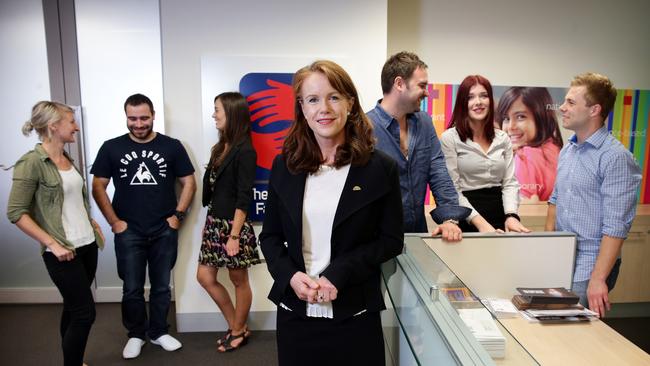
What should be the key issues in the next federal election campaign?
Rebuilding trust in our democracy and public institutions, including our ability to develop evidence-based, long-term policy, is absolutely critical for our nation. For young Australians who face an increasingly uncertain employment future, there is an urgent need for a more effective and comprehensive approach to careers support, so they can develop the knowledge, skills, attitudes and behaviours to participate in the 21st century economy.
What use are you making of customer and company data and how are you
collecting it?
At The Smith Family, we are tracking the progress of nearly 43,000 disadvantaged students on our Learning for Life program. Each student has a unique student identifier, which enables us to monitor individual outcomes over the long term. By using this data, we can improve the effectiveness of our own programs but the impact is far broader – it is also contributing to the national evidence base to help improve the educational outcomes of all young Australians.
What are the key challenges for your company next year?
Recognising that the world is changing rapidly, particularly for the disadvantaged young Australians we support, our organisation needs to keep pace with that change. It’s crucial we not only digitally transform ourselves but empower young people to thrive in this world. We are very focused on implementing our data enablement strategy, which will help us to deliver greater impact and effectiveness at scale, improve stakeholder engagement and experience, and increase organisational efficiency and effectiveness.
How can big business regain community trust?
Strategic philanthropy is an effective way to build trust and deliver positive social and economic outcomes. Businesses can develop meaningful partnerships with not-for-profits to make a lasting difference through long-term investment in local communities. As an organisation that partners with dozens of businesses, large and small, to tackle the complex issue of child poverty in our country, we see the wider benefits that can be gained by working together.
What cost pressures are hitting your company? How are they being offset and
do you see any pressure to lift wages? If so, how much?
Significant investments are needed to build our digital capacity and capability so we can meet the needs and expectations of our customers, including the roll-out of increasingly more robust information privacy and security measures. These costs are manageable in part because of the large numbers of corporate and community volunteers who generously donate their time and skills to support our work. Last year, an extraordinary 8389 volunteers collectively donated more than 400,000 hours of their time – the equivalent of $12.1 million – to help young Australians in need.
-
Mark Palmquist | Graincorp

What should be the key issues in the next federal election campaign?
A long-term policy for energy is critical for the Australian economy. Without it, Australian business will struggle to compete with cheaper international competitors.
What use are you making of customer and company data and how are you collecting it?
We are actively gathering customer feedback on our service and products so we can continue to evolve and improve our service offering.
What are the key challenges for your company next year?
Drought will continue to be a significant challenge for Australian agriculture and related processing businesses. Our malt and oils businesses are impacted by high energy costs in Australia, so we will continue to push for a long-term policy to enable business to plan effectively.
How can big business regain community trust?
Business can do more to listen to its own people, as well as its customers. Many thousands of Australians work for a big business, and many more than that rely on us for essential goods and services. Our people want us to succeed and will play a critical role in shaping business’ response. Our customers are also key – any business that has truly placed its customers at the centre will have gone a long way towards more closely aligning itself the community. We all have a significant stake in successfully rebuilding trust.
What cost pressures are hitting your company? How are they being offset and do you see any pressure to lift wages? If so how much?
The drought across the east coast of Australia has resulted in a lower grain production this year and consequently lower throughput volumes and exports. GrainCorp has already simplified the operating structure of the grains business unit to remove some costs and position it to deliver more focused and relevant customer services.
-
Andy Penn | Telstra

What should be the key issues in the next federal election campaign?
It’s not an election issue as such, but the current wholesale price for the NBN is absolutely unsustainable and an issue that needs to be resolved. Operators are starting to exit the business and we’re seeing some providers increase fixed broadband prices for the first time in a while. This is something that will have to be addressed if NBN and the industry is ever to be viable and sustainable. I don’t believe we can simply charge our customers more – that’s not the right answer. Nor can we continue to sell NBN making little or no money. Something needs to give.
What use are you making of customer and company data and how are you collecting it?
We identified more than two years ago the need to invest and create the platforms we need for the future and using our data more effectively and intelligently was a part of that. We have invested to replace our core IT systems, including the whole of our customer relationship management systems. We’re replacing our billing systems, our order management systems, our customer interface systems, and all of these systems are being built on a new technology stack in the Cloud with an extensive ecosystem of APIs. The size and complexity of our network systems, products and processes is enormous. Our networks and systems support more than 16 million customers, we undertake 40 million operations every single day, we operate more than 100,000 computer servers on our premises. The number of interactions that we have with our customers that are recorded in our systems is in the hundreds of millions a year. The number of transactions on our network is in the hundreds of billions.
What are the key challenges for your company next year?
The telecommunications industry is at a challenging stage in its cycle because most operators have rolled out 4G and competition on price has increased. This is exacerbated in Australia by the NBN and the negative impact it is having on industry economics, including the high wholesale pricing. That’s why took the decision in June this year to be much more aggressive in the transformation of the business through our T22 strategy leveraging $3 billion of incremental investment in creating the platforms we believed we would need for the future. We’ve made good progress on that since launch and we’ll make more in the next year, but we expect conditions to remain challenging in the short term. Against that background, 5G heralds a new opportunity for growth particularly for those that will be leaders in this new technology as indeed Telstra is.
How can big business regain community trust?
We have seen trust in government and corporate institutions break down globally and this is concerning – we need to do a much better job collectively and as individual organisations to rebuild this trust and it is not about words, it’s about actions. Creating and maintaining trust comes from listening to your customers, being open and transparent and doing what you say you will do – it sounds simple but we have a lot of work to do as a collective to turn it around. This was a large driver in our T22 strategy to remove fees that the industry has historically charged, which came at a significant cost, but which we believe this will be more than offset by an increase in the number of services per customer and the benefits of an improved customer experience.
What cost pressures are hitting your company? How are they being offset and do you see any pressure to lift wages? If so how much?
As part of our T22 strategy we increased our net cost productivity target by $1 billion to $2.5 billion to be delivered by the end of FY22. Our company-wide productivity program has four main components. First, we are simplifying product offerings. This involves phasing out legacy products, migrating customers to new better products and simplifying our NAS offerings, and we will decommission systems that support legacy products. Second, we are targeting a simpler organisation to de-layer, de-duplicate and reduce demand. Third, we are digitising and automating sales and service channels. With increasing customer preference for digital channels, and by enabling straight-through processing, we can improve the customer experience and reduce service costs such as calls. Finally, our discretionary cost review program is targeting reduced operating costs by tightening business policies across procurement, property utilisation and discretionary costs such as transport.
-
Andrew Pike | Herbert Smith Freehills
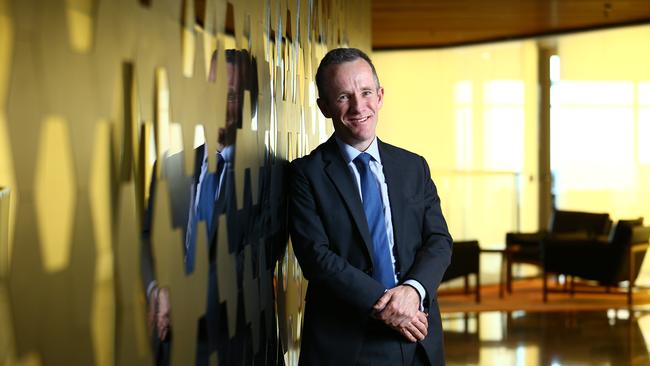
What should be the key issues in the next federal election campaign?
Energy and taxation policy should both be key issues in the election; those issues will attract interest from business and the wider community, and rightly so. For the last few years, there has been a lack of clarity and direction around these key planks. This lack of clarity and certainty is having a significant impact on the willingness of business to invest. The position is most acute in relation to energy policy. For this to be remedied, both major parties must be clear in outlining their policies in these areas in the lead up to the election.
What use are you making of customer and company data and how are you collecting it?
Data is becoming a major asset of most businesses. We are spending a lot of time helping our clients navigate the new paradigm. This has both a defensive and offensive aspect to it. Defensive in the sense that clients must protect data from cyber attack and give their customers confidence that data will only be used for clearly understood and agreed purposes. Offensive in that with the advent of AI, our clients are better able to analyse data and use it to their commercial advantage. Like other businesses, we are using our data to improve our processes and become more efficient. As a firm, we are limited by professional rules as to what we can do with client data. The insights that we gather from this data are used to constantly assess our processes so that improvements can be made for the benefit of our people and our clients.
What are the key challenges for your company next year?
Technology and talent will be two key themes in the next 12 months. Technology is starting to impact and shape the delivery of some aspects of our service and our challenge (and opportunity) in the next 12 months will be to adopt and exploit technology for the benefit of our people and our clients. The last 12 months has seen a significant increase in workflow in the legal sector. This is likely to continue next year. This has made attracting and retaining talent a key business issue. A strong and innovative culture, meaningful work and supporting career aspirations are important aspects of being an employer of choice. We will be doubling down in these areas in the next 12 months. A good example that brings together both technology and talent is how we are continuing to grow our Alternative Legal Services business (including from our office at St Kilda Road in Melbourne), which utilises a different operating model to provide clients with quality work and efficiency for work that has process elements to it.
How can big business regain community trust?
It’s been a tough year for Australian business in regard to building and maintaining trust, and we have seen a number of institutions fall short of community expectations. Trust is earned, and a key task for businesses in earning community trust will begin with making sure the culture of the organisation is centred around doing the right thing by the customer and the community – some of the statements coming out of the Royal Commission are consistent with that. There is no silver bullet to regaining trust. There needs to be clear alignment throughout an organisation including in areas such as executive remuneration, culture, employee and customer engagement.
What cost pressures are hitting your company? How are they being offset and do you see any pressure to lift wages? If so how much?
There has been a significant increase in demand for legal services in recent times, which has seen us recruit more talented people to help meet the needs of our clients. This has increased cost pressure on wages. We’ve endeavoured to offset this cost via a number of means, including the use of technology and more efficient use of our premises. An example of where we have taken measures to reduce our real estate costs was the relocation earlier this year of around 230 of our people in Sydney, mostly business services staff, from the CBD to a new custom-built office in Macquarie Park. The new office has enabled us to adopt agile working and innovate the ways in which we collaborate with each other and with clients. As a result of the move we were able to relinquish several floors in ANZ Tower and have achieved a much more sustainable occupancy cost. We were the first law firm in Australia to take this step and have since announced similar plans elsewhere in our global network. For instance, we have opened a second London office in Canary Wharf.
-
Brett Redman | AGL
What should be the key issues in the next federal election campaign?
Cost of living is an issue in every election and for most people, it’s the most important. We know that power bills are a big concern. Both parties have policies that address this and it’s right that they do.
For our part, we are hopeful for policy certainty that will bring forward the investments needed for energy security and affordability.
What use are you making of customer and company data and how are you collecting it?
Our view is the customer owns the data. In terms of the data we hold for our customers, we already have a product called Energy Insights that assesses usage and gives households some direction on how to be efficient. Tools like this will help people have more control.
What are the key challenges for your company next year?
We need to get to the point where we can make the necessary investments in the energy system to deliver cost-effective power. We’ll push ourselves hard on that, but government policy and stability would also help.
How can big business regain community trust?
I think this goes back to the underlying purpose of the business. At AGL we have a technical engineering-based heritage and we take pride in the advancements we have made. In the early days that was simply bringing gas to Sydney then later, lighting the streets of Sydney. Now we’re finding innovative ways to fund renewables projects. It’s reconnecting with the point of all of that. We’re focusing on the role we play in society and in the lives of our customers. Delivering in that role is how we build trust.
What cost pressures are hitting your company? How are they being offset and do you see any pressure to lift wages? If so how much?
Cost focus is important, but we want to make the changes in such a way that we improve our service. We’re switching to online and digital systems not just to cut costs, but to make it easier for customers to deal with us. On wages, we have enterprise agreements across our sites that have wages rises of between two and five per cent. It’s a cost pressure we face, but at the same time, wage growth is important for the economy.
Stephen Rue | NBN
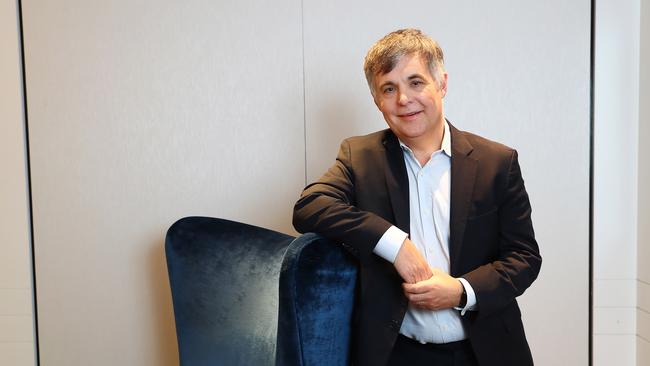
What should be the key issues in the next federal election campaign?
As the NBN nears completion, I expect continued discussion on how the network can be best used to underpin sustained economic growth and to ensure all Australians can enjoy the benefits of a connected continent.
What use are you making of customer and company data and how are you collecting it?
NBN has made customer experience central to the way we build and operate the network. We build a performance culture based around an integrated program of Business Process Excellence, which we apply to everything we do. We survey users regularly to identify pain points and we measure our performance against key metrics. This data has helped us to identify issues and make significant improvements in the way we connect homes; the experience people have on the network and the time it takes us to repair a service in the event of a fault. Over the last year we have seen the time it takes to connect a home fall by 40 per cent; and the time it takes to repair a fault fall by 60 per cent. At the same time, we have seen satisfaction scores increase by 17 per cent.
What are the key challenges for your company next year?
NBN has a highly engaged workforce that believes strongly in the company’s purpose of connecting Australian and bridging the digital divide. As we approach the end of the rollout, we need to maintain a challenging build program at the same time as we adjust our focus beyond 2020. Keeping people engaged and focused as the company continues its transition from a build company to an operate company is something my leadership team and I are very focused on.
How can big business regain community trust?
NBN operates in a competitive environment and this will continue as new technologies emerge. Trust is an essential part of NBN’s business model and for us this means making sure the experience people have on the NBN network aligns with their expectations. We are constantly working with retail service providers to improve processes and keep customer satisfaction heading in the right direction. When people are confident that they will be getting access to a fast, reliable broadband connection, they are more likely to migrate to the network quickly (bringing forward revenue) and to stay on the network in the long term.
What cost pressures are hitting your company? How are they being offset and do you see any pressure to lift wages? If so how much?
The improvements we have seen over the last year in customer experience, for example, have come at a cost, and we reflected this in our latest corporate plan.
-
Luke Sayers | PWC

What should be the key issues in the next federal election campaign ?
A fundamental re-think of our tax system is essential to Australia’s long-term prosperity so I’d like to see both parties put forward comprehensive tax reform policies ahead of the election. We also need to resolve our stalemate around energy policy - policy that addresses both power prices and emissions. Businesses need clarity to enable long-term planning and Australians need relief from rising power bills.
What use are you making of customer and company data and how are you collecting it?
Advancements in data analytics and other technologies have transformed how we audit, with our teams now able to test 100 per cent of transactions rather than relying on small samples. This not only improves accuracy and quality, we can also generate new business insights for our clients. We are also developing new data driven tools to help our clients such as “paidright” – a tool which applies AI and data analytics to help companies comply with complex workplace laws and ensure payroll accuracy.
What are the key challenges for your company next year?
A huge focus for us over the next 12 months is digital transformation. Many of our service offerings will be automated in the years ahead and we need to ensure our business model supports that, our people have high digital IQ, and that we have the right capabilities and expertise to support our clients with their digital transformations.
How can big business regain community trust ?
A decline in trust in most of our institutions has fed the rising nationalistic and protectionist movements we are seeing around the world today. This is a complex issue, but the answer is simple - in theory anyway - and that’s to put the customer at the centre of everything a company does and not let this purpose be overshadowed by other stakeholder demands, whether they be shareholder or something else. Business also needs to get a lot more comfortable with transparency and we all need to lean into public debates on issues of importance to the future of our country – whether they clearly align with business interests or not.
What cost pressures are hitting your company? How are they being offset and do you see any pressure to lift wages? If so how much?
The vast majority of businesses are facing the challenge of doing more with less and professional services is no different. This means we need to be constantly thinking about how we can become more efficient in everything we do. We have three core focus areas; 1) how we can leverage technology to solve our clients’ most complex problems, 2) digitising each of our own businesses to drive scalability, efficiencies and support growth, and 3) developing the personal digital capabilities of each of our partners and employees. With regard to wages, we lifted wages by an average of 3 per cent at our FY18 full year performance cycle and we are committed to paying competitive remuneration packages to ensure we attract and retain the very best talent in the market. Our all roles flex policy, supporting our people to dedicate social impact time to important community issues, as well as ongoing coaching and learning and development opportunities, round out what we believe provides a very competitive employee value proposition.
-
Rob Scott | Wesfarmers
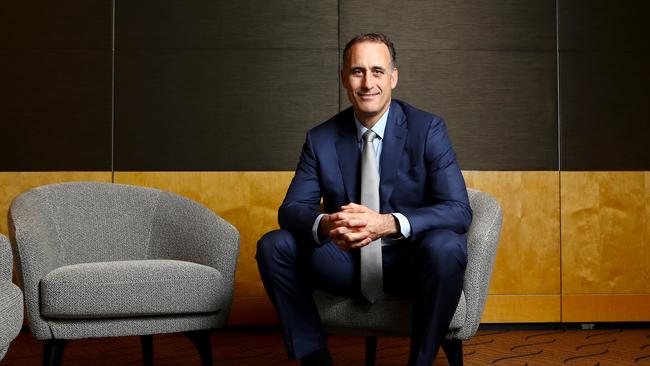
What should be the key issues in the next federal election campaign?
Australia’s international competitiveness: I would like to see a greater sense of ambition for Australia and a recognition that Australian business does not operate in isolation. Australia needs more successful businesses, big and small, that can compete with the best in the world in order to create the jobs and provide the products and services we need to sustain our society. This requires settings to attract, develop and retain the best talent and encourage and incentivise enterprise. We also need to continue to embrace the benefits of immigration and invest in the infrastructure and services to support our growth and provide a safety net for those in need.
Australia as the Healthiest Nation: in line with international competitiveness, I would love to see us aspire to be the healthiest nation. The business case for improved health outcomes is a no brainer. We need to start by encouraging health and wellbeing, get kids active in school and promote activity and health at all ages. Physical activity and healthy eating reduce obesity, heart disease and helps with emerging health issues such as anxiety and depression. It leads to happier and more productive communities and will help with spiralling health costs. In addition to the broader economic and societal benefits, this goes to our national brand. We should invest in this at a grass roots/community level while also increasing funding to our Olympic team that have the capacity to mix it with the best in the world to enhance our brand and provide inspiration to all of us.
What use are you making of customer and company data and how are you collecting it?
Most companies have more information than they know what to do with and this is certainly the case across our businesses. At a customer level we are using data to tailor personalised offers to customers and to help customers save money. At the business level we use data and data analytics to help optimise our business performance – for example, by producing localised ranges, forecasting inventory requirements, improving workplace safety and refining markdown strategies. We collect data through programs like Flybuys, our JV with Coles, which has 8.6 million active members, and Bunnings’ Powerpass, and from our point of sale and online transactions across each of our businesses. We also capture customer insights through regular surveys and feedback mechanisms. Development of digital and data capability has been a priority in my first year as CEO. It is critical for future competitiveness, and our progress, including the establishment of our Advanced Analytics Centre, has been really pleasing.
What are the key challenges for your company next year?
We will remain focused on our core objective of delivering a satisfactory return to shareholders. We define this as superior returns over the long term. We can only achieve superior returns over the long term if we create value for all our stakeholders, including the communities in which we operate, and maintain a good reputation. Uncertainty in the housing market is impacting consumer sentiment. In the longer term, it is good that housing is becoming more affordable, but inevitably people will take some time to adjust to this change. Our businesses are well positioned to withstand any sustained downturn but we must continue to develop new products and services to meet the needs of customers and sustain our growth in the future.
How can big business regain community trust?
At Wesfarmers, we see community trust as closely linked to our business performance, over the long term. We will only meet our corporate objective – to deliver superior returns over the long term – if we create shared value for all stakeholders and act in an ethical, responsible manner. Our stakeholders include our customers, team members, suppliers and the communities in which we operate, including the environment. I am fortunate to lead a company with such clarity of purpose – including an awareness around the interdependencies between performance and how we engage with the community.
Be obsessively customer-driven, as well as highly conscious of all our key stakeholders’ concerns – employees, the community, governments. It will result in outcomes that will benefit shareholders in the long-term Accept that people make mistakes but leaders must act swiftly and decisively to make good when they do. The public understands this and respects accountability and action.
What cost pressures are hitting your company? How are they being offset and do you see any pressure to lift wages? If so how much?
The cost of electricity – which has surged on the east coast in recent years – has been a real focus for our retail businesses. To manage this risk, our businesses work together to purchase electricity and manage their electricity price risk exposure. We have also rolled out an electricity servicing centre which uses smart meters to monitor electricity usage and actively report to store maintenance technicians to quickly rectify any anomalies. Greater policy certainty around energy policy would be helpful. Maintaining a strong relationship with team members is critical to our business performance. Across the businesses, we work hard to reward team members well – financially, and with opportunities for interesting, fulfilling careers. When our businesses are performing at their best, everyone wins. Moves to reduce flexibility to adjust to changing customer demands will ultimately make our businesses less competitive and reduce the value that can be shared across our workforce.
-
Julian Segal | Caltex
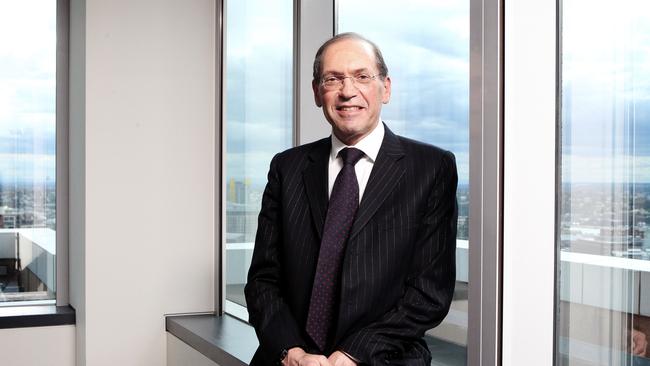
What should be the key issues in the next federal election campaign?
A robust discussion on the electricity market and a long-term bipartisan approach to energy policy is overdue. Electricity and gas are two major input costs across many parts of our business and for many other large and small Australian businesses. It’s become somewhat of a cliché but above all business needs certainty on long-term energy policy to ensure cost, security and supply concerns are addressed. The impact of these policy decisions on Australian manufacturing and jobs cannot be understated.
What use are you making of customer and company data and how are you collecting it?
In our retail business we use customer transaction data to refine our in-store offers. Our digital services, like the Caltex FuelPay App which lets customers choose to pay for fuel on their smartphones without going into the store, also provide us with data to develop targeted fuel and retail offers. The other data opportunity for Caltex is in operational safety, reliability and efficiency. We control our full supply chain, from the importation and refining of fuel products to the distribution of these products to our wholesale and retail customers. We extract data insights on supply availability, needs and movements that enable us to optimise our operations. This ultimately leads to a more efficient and safer business.
What are the key challenges for your company next year?
Caltex is in a different place from five years ago, following our transformation to focus on two well-defined core businesses – Fuels & Infrastructure and Convenience Retail. Both businesses have demonstrated good growth potential, in Fuels & Infrastructure with our regional step-out in Singapore, New Zealand and the Philippines, and in Convenience Retail with the roll out of over 50 of our new concept retail format sites, The Foodary. We are adept at anticipating and preparing for change but compared with just five years ago, change is accelerated and not always at a time of your choosing. We’ve demonstrated our agility by the massive transformation we’ve been through and, concurrently, we will maintain our financial discipline which underpins our track-record in good decision making that delivers for our shareholders.
How can big business regain community trust?
When you consider that businesses like Caltex require the trust of the community to operate – in our case to deliver the fuel and everyday needs of customers safely and reliably – it’s essential to understand that community trust is earned. We engage in the communities where we live and work, continue to listen to community concerns about safety and the environment and the way we operate, and we demonstrate that this is a compact that we are serious about. Talk alone doesn’t do it. There needs to be real and lasting action that goes to the heart of what the business stands for. If we get it wrong we own it, we set a path to fixing it and we put in place measures to prevent a recurrence.
What cost pressures are hitting your company -How are they being offset and do you see any pressure to lift wages -if so how much?
The cost of electricity and gas over the long-term will be important to Caltex and the broader base of manufacturing in Australia. All business needs certainty on long-term energy policy to ensure cost, security and supply concerns are addressed. Current pressure around wage growth does not to us appear to be any different to any other recent time in the Australian economy.
-
Ian Silk | AustralianSuper
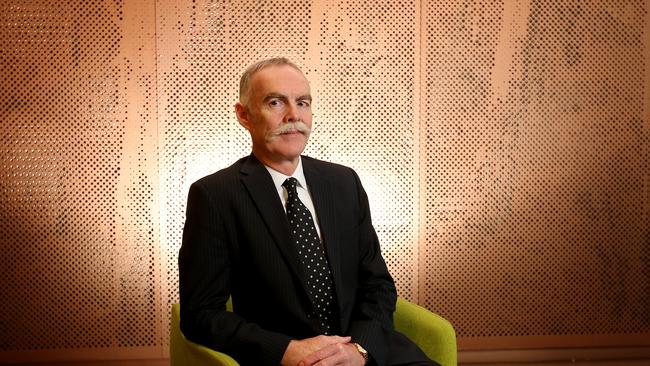
What should be the key issues in the next federal election campaign?
Sustaining economic growth and ensuring that everybody benefits from economic prosperity should be a key focus. Clear and long term energy policies are also needed. Infrastructure, health, housing and education must also be front and center in the campaign. Reaffirming a commitment to raising the Superannuation Guarantee to 12% should also feature.
What use are you making of customer and company data and how are you collecting it?
Data is collected at many points in the organisation, including the contact centre, our annual member survey, the more than 1000 workplace seminars we run and the eight member briefings that we hold in every capital city each year. Those seminars attracted over 6000 members and provide great insights into members’ concerns and expectations. Member feedback and data guides how we further develop and improve the Fund’s level of service.
What are the key challenges for your company next year?
Delivering the best possible returns for members in a difficult investment environment is the biggest challenge. There will likely be some form of market correction in the near future and managing the Fund’s approach to this will be complex. Encouraging members to not immediately react to market events will be another major challenge.
How can big business regain community trust?
AustralianSuper did research on the issue of trust and what we discovered is that it is built on three pillars: character (an organisation acts ethically), benevolence (it acts in the members’ interest) and capability (it is competent). The findings from the Hayne Royal Commission will also provide some further guidance on how important retaining member trust is to the long-term performance of the Fund.
What cost pressures are hitting your company? How are they being offset and do you see any pressure to lift wages? If so how much?
We have always been very conscious of costs as a profit to member fund. This has meant that members with an average balance of around $50,000 are paying around $100 less in fees than they were almost 10 years ago. The biggest pressure has always been investment costs and we have implemented a major program to internalise investment management to bring costs down for members.
-
Rob Sindel | CSR
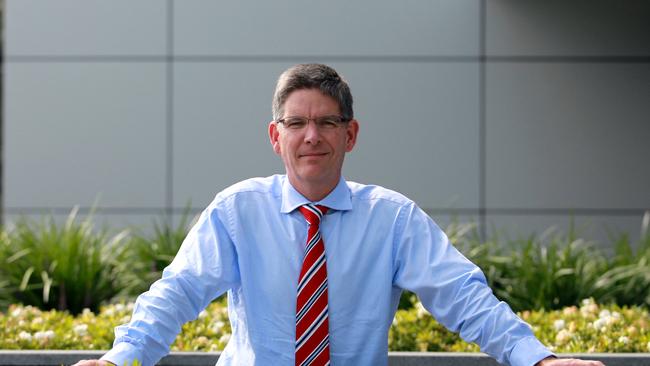
What should be the key issues in the next federal election campaign?
Opening up access to Australia’s gas reserves to increase supply to domestic manufacturers. This will require support at both the state and federal level to increase supplies and improve competition in the domestic gas market. Support for population growth which helps drive Australia’s economic property as it has done since World War II.
What use are you making of customer and company data and how are you collecting it?
CSR Connect digital platform provides 24/7 access for our customers to track orders, pricing, payments and deliveries. Secondly by sharing our knowledge of upcoming construction projects we can create project leads for our customers, helping grow their business.
What are the key challenges for your company next year?
Ensuring the global competitiveness of our large manufacturing operations while input costs are rising.
How can big business regain community trust?
Engaging with local communities near our operating sites so they recognise the benefits we bring to their community through employment near where they live, support for local businesses and providing career opportunities in manufacturing.
What cost pressures are hitting your company? How are they being offset and do you see any pressure to lift wages? If so how much?
Rising energy costs and raw material costs which are being partly offset with pricing and efficiency improvements. We are not seeing significant pressure on wages at this time.
-
Mark Steinert | Stockland
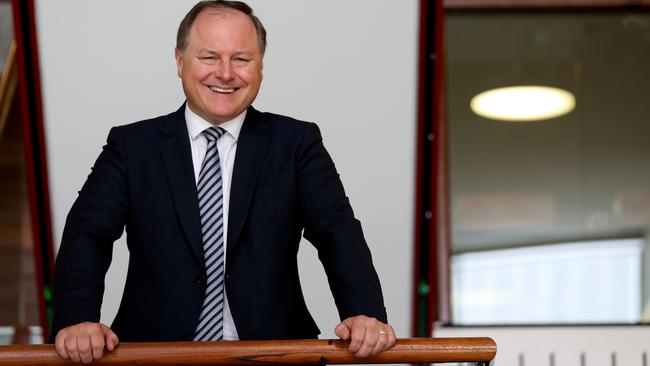
What should be the key issues in the next federal election campaign?
The growth of Australia’s cities is increasingly front and centre as Australians focus on the connectedness of the places they call home. This has been a key issue in the recent Victorian election and will undoubtedly be important in the NSW and federal elections to come.
Fast-tracking the early delivery of infrastructure and ensuring high levels of amenity, safety and security will be vital in creating confidence about managing our growing population. The data from our annual liveability index consistently shows that Australians value communities that are well connected to services, shops and infrastructure and close to employment opportunities.
Last year housing affordability was a first-order issue for the federal government and the centrepiece of its budget. While prices have moderated, a growing population is keeping pressure on demand, so government needs to ensure it focuses on measures to support home buyers in this changing environment where finance availability has become more constrained.
The federal government must also recognise that living patterns are changing within the community with more people renting for longer than any time in the last half-century. A build-to-rent asset class in Australia would not only give these customers with good security of tenure more housing choice, but also create a pipeline of new jobs.
Security of savings is also incredibly important to our ageing population, as more Australians focus on their retirement, these policies will continue to be of intense interest.
What use are you making of customer and company data and how are you collecting it?
We are undertaking a significant change to our core systems, and recently implemented Salesforce to ensure a one company view of our customer data and provide a better customer experience. This new system is making it easier for our employees to engage and respond efficiently to our customers. We use our online research community, Stockland Exchange, to gather regular insights directly from our customers. Started in 2013, this online community now has 5700 customers actively engaged and participating in regular surveys on a range of different issues, providing critical and timely insight into our customer experience. These sorts of real time customer engagement platforms will play an important role in our future. Big data analytics and using smart devices, the Internet of Things, sensors, and AI to capture real time customer information is integral to our business, particularly in retail town centres. This enables the tenant mix to be curates for the customer.
What are the key challenges for your company next year?
There’s no doubt that 2019 will be an interesting year for the property industry as we shift gears in the property cycle. Moderating residential markets combined with an increasingly competitive retail environment require a clear focus on the customer and product differentiation. We continue to target up to an additional $300 million of retail divestments over the next 12-24 months as we reshape our commercial portfolio and recycle capital into our workplace and logistics development pipelines, and our share buyback. We are making good progress, building this part of our portfolio to greater than 25 per cent of total assets, led by an identified $600 million development pipeline.
How can big business regain community trust?
For over 66 years Stockland has built a reputation for doing what we say and creating string relationships with our customers and stakeholders. We know that our social licence to operate exists at the community’s discretion. We build and maintain trust by being upfront and transparent, consulting with our communities and our stakeholders, and taking seriously our responsibility as one of Australia’s largest property groups. This is reflected in our intense focus on driving sustainable shareholder value creation and our purpose of inventing a better way to live. The current environment and community expectations mean business leaders must focus on managing the short and medium term, but also play a role in considering the longer term outcomes for the community and the nation.
What cost pressures are hitting your company? How are they being offset and do you see any pressure to lift wages? If so how much?
Like any business, we experience a range of cost pressures. Our biggest challenges often come from the cost implications from delays in the planning and development approval processes. These costs vary between local government areas, and across state lines, and can create a full range of uncertain variables that we need to account for. We’ve also taken steps to insulate our business from variations in energy prices with the roll-out of a $33 million rooftop solar installation program across 20 retail town centres and logistics parks across Australia. Rates and taxes and insurance costs have also typically been rising faster than CPI. We, like all businesses, need to remain competitive in rewarding staff and our employee average wage has been typically growing around inflation.
-
Dominic Stevens | ASX
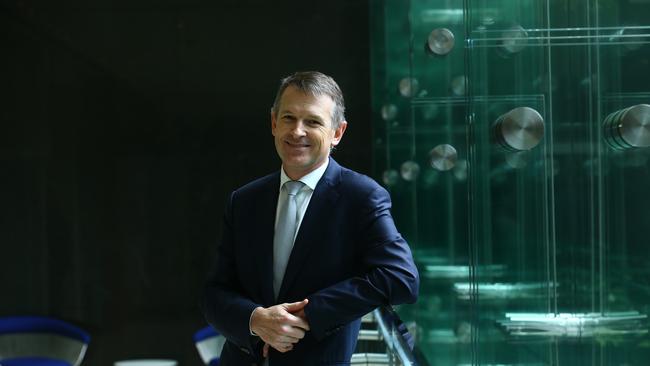
What should be the key issues in the next federal election campaign?
Among the key issues should be … 1) A clear and sustainable energy policy for the nation, which includes a significant role for renewables. 2) Ensuring our financial and corporate regulators have the appropriate resources they need to protect consumers whilst maintaining Australia’s competitiveness. 3) An articulation of a long-term vision for Australia – where do we want to be socially, culturally, economically, globally in five, ten, twenty years’ time? - and a plan about how to execute the vision, above and beyond the distraction of daily politics and opinion polls.
What use are you making of customer and company data and how are you collecting it?
ASX has been collecting transactional data from customers and company news from ASX-listed entities for many years. We make this data available to subscribers via market data and news services, and provide a lot of it to investors on our website. The quantity and quality of data we collect, coupled with changes in technology, present opportunities to innovate and offer new products and services. We’re building a platform that allows customers to better leverage and analyse the volume of data we gather, and enables them to more easily integrate it with their own data. ASX’s aim is to extend our capabilities and present new and enhanced data assets to customers to assist them to innovate and grow.
What are the key challenges for your company next year?
A key focus for ASX remains helping our customers, and the market more generally, reduce costs and complexity. Alongside this is the work underway to leverage our capabilities as a trusted provider of critical infrastructure to create new opportunities for ourselves and for our customers. The highest profile project that pulls these strands together – and it’s by no means the only example – is our work to replace CHESS with distributed ledger technology. By 2019, we’ll be more advanced and the benefits of the technology to drive efficiency and stimulate innovation will be even more apparent. Less high-profile, but equally vital, are the enhancements we’re making to ASX’s risk management, technology governance and cyber security. These will loom large for all businesses in 2019 and beyond.
How can big business regain community trust?
Better balance the needs and expectations of the community within which business operates. ASX’s vision is to be the world’s most respected financial marketplace, which is deliberately different to aiming to be the biggest or most profitable. Business must act, and be seen to act, honestly, considerately and with integrity, and be vigilant about stamping out misconduct within its ranks. Boards and senior management must demonstrate that they are in charge of setting the right culture and are unafraid to be held responsible. If business is found to be doing the wrong thing, the community expects that the wrongdoers will be punished.
What cost pressures are hitting your company? How are they being offset and do you see any pressure to lift wages? If so how much?
Rising electricity and regulatory charges caused an uplift in ASX costs over the last 12 months, but so too have costs associated with our program to build stronger foundations in risk, operations and technology. These are investments in ASX’s future. We are very disciplined with our expenditure and remain one of the most efficiently run exchanges in the world. We compete globally for talent, often talent with specialist skills, and aim to attract and retain high-quality employees. We do this in part by having a remuneration framework that’s flexible, rewards performance and can adjust to market needs. Given the demand for talent, we are seeing signs of wage growth, particularly for specialist roles.
-
Catherine Tanna | Energy Australia
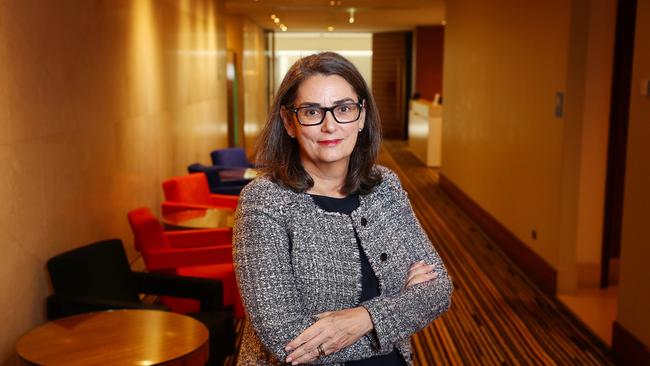
What should be the key issues in the next federal election campaign?
We’re missing broad-based and bipartisan support for long-range and national reforms; energy is an example. Right now, politics is making it very hard for good politicians – on all sides – to do the right thing.
As the days to an election tick down we’ll be hearing a lot more about:
Energy policy: For the past decade energy policy has been mired in partisan climate wars and today families and businesses are paying the price. We – government and industry – must make sure that never happens again. That’s where a bipartisan, national energy policy comes in, one which provides for a planned, deliberate transition to cleaner forms of energy as old coal closes – that’s still the missing piece of the puzzle.
Restoring confidence in the political system: Energy policy is an example, and the citizenship crisis and ongoing inter-party wars are others … It feels like public trust in politicians has never been tested as greatly as it is today.
This coming election is an opportunity for good politicians to step up and do the right thing. All the better if we can get bipartisan support on the big issues.
What use are you making of customer and company data and how are you collecting it?
It’s a great responsibility being trusted with a customer’s personal information. We have an ongoing investment program aimed at keeping that information safe – that’s our first priority. We’re also working at making our systems easier to navigate for people, whether it’s making sure customers aren’t bounced from one agent to another or that only three clicks of a mouse are needed to change plans online rather than, say, 15. Ultimately, it’s about making fewer mistakes and providing better service, so customers get what they need quicker and they don’t spend time calling us.
What are the key challenges for your company next year?
We have one overriding goal for 2019: helping take the pressure off household energy bills. Internally, our challenge is sustaining momentum. We’re making great progress transforming EnergyAustralia into a business that customers choose, trust and stay with. Customers are getting better service and our power stations are more efficient and reliable. Change is hard though, and I want to make sure we build on the great work our people are doing. As we do that we’re also consolidating and growing our new NextGen business in a highly competitive, fast-moving market. The technologies and approaches we’re developing are putting customers at the heart of a new, modern energy system. Our energy team is also assessing important investments in projects to help smooth the transition to a cleaner energy future. Of course, continued investment can only be done if companies are strong and profitable, with clear and stable government policy.
How can big business regain community trust?
Business – big and small – is fundamental to the wellbeing of our communities and our standard of living. People want to know that the private sector does the right thing; they feel let down when they see poor or bad behaviour. I do think that many of the lapses we see are genuine mistakes, rather than calculated attempts to deceive or profit unfairly at the expense of customers. But we can always do better, particularly in admitting when we’ve done wrong and fixing problems as quickly as we can. Of course, while continued investment by business is good for the community, it can only be done if companies are strong and profitable, with clear and stable government policy.
Business spends too much time worrying it’s not trusted by the public and too little time answering: “How can we act in ways that justify the trust placed in us?” In other words, it’s what we do that matters. It’s better to focus on providing reliable and fair service day after day. If we do the right thing by customers and employees, then our reputation will take care of itself. That doesn’t mean we never make mistakes, but where we do we fix them quickly and take responsibility for our actions.
Campaigns can’t work in isolation, and they’re certainly not a substitute for doing the right thing. One tabloid headline can undo a lot of the work promoting the positive. When it comes to restoring trust, there’s no easy fix. It’s doing a bit better every day. It’s about hard work.
What cost pressures are hitting your company? How are they being offset, and do you see any pressure to lift wages? If so how much?
The headwinds we see relate to fuel, systems and regulation.
Commodity prices have increased, and we are a purchaser of gas and coal to run our generation assets.
We rely on our systems to deliver the services that customers want and expect and to protect their information; building, upgrading, running and maintaining those systems costs money, and
In the past few years the plethora of changes to state and federal regulation has added significant costs to running our business.
There is limited capacity to offset increases in these costs, and we’re seeing that reflected in the pressure on electricity prices. But we’re working relentlessly to eliminate activity that doesn’t provide value for customers and to improve productivity.
On wages, we are fortunate we have a very patient owner with great values. So, when EnergyAustralia was not profitable, making losses and writing down the value of its assets by almost $2 billion, our owner kept an eye on the long-term. That meant employees still received increases in real wages, as they do when we are profitable.
More broadly, electricity prices rose quickly – and steeply – in 2017 largely because the Hazelwood power station in Victoria’s Latrobe Valley was shut earlier than anticipated, before new supplies were ready to take its place. We’re doing four things to address them:
First – we’re taking care of our most vulnerable customers, including an additional $10 million investment in our hardship program. From 2019, pensioners, veterans and healthcare-card holders on default tariffs will automatically get a 15 per cent discount on their energy usage. Among other measures we’ve scrapped fees for paper bills and over-the-counter transactions for all customers in New South Wales, Victoria, South Australia and Queensland.
Second – we’re making bills easier to understand. We’re providing clear descriptions of terms and costs – in dollars – so everyone can know how much they’re actually paying for energy and we’re supporting development of a comparator-rate, so customers can assess offers across retailers.
Third – we’re making sure we have great offers like Secure Saver and we’re helping our customers get on the plan that’s right for them. We’ve written to our customers on default tariffs advising them there are better offers available.
Fourth – we’re investing to bring down the cost of wholesale electricity and build a modern energy system, whether via our recently completed $1.5 billion renewables program or potential new projects we’re investigating, liked seawater pumped hydro in South Australia or energy recovery at Mt Piper. We’ve also run our gas-fired power stations harder, to fill the gap in supply and we’ve secured coal supplies for the Mt Piper power station, allowing the plant to generate electricity more freely. (The caveat is, of course, that investment can only be done if companies are strong and profitable, with clear and stable government policy.)
-
Andrew Thorburn | NAB

What should be the key issues in the next federal election campaign?
Australia has a chance for another wave of prosperity and growth — by focusing on things like education, skills, infrastructure to improve productivity, technology, the agri sector and how we realise the potential of regional and rural Australia. Voters will be looking to who has the best long-term plan and vision to capitalise on these opportunities.
What use are you making of customer and company data and how are you collecting it?
Data really is the currency of the future and it’s critical to our transformation to become a simpler and faster bank. We’re investing in tools and systems to make better use of data and anticipate customer needs, as well as to automate our processes. An important part of this is continuing to invest in improving our monitoring and controls to better protect customers against fraud.
What are the key challenges for your company next year?
We are now 12 months into an ambitious three-year transformation that will make NAB simpler and faster and enable us to consistently deliver exceptional service for customers. Of course, we are facing significant questions as a sector around reputation and trust — and there’s a clear case for change, which we are committed to. We’ve taken a number of actions for customers in recent months, like enabling farmers to offset their lending, and ending default interest for those in drought — and we will continue to listen and think differently for customers in the year ahead.
How can big business regain community trust?
I’ve reflected on this trend deeply this year and it’s clear to me that in banking over the past two decades we’ve drifted from our customers and lost their trust because we were too short term and focused on the wrong things. We need to apologise, fix mistakes and make changes to be better and we also need to earn the trust of our customers and the broader community by explaining better what we do. We have a role to play to demonstrate how businesses like NAB are part of the future — by creating jobs, helping our customers grow and create prosperity for them. Earning trust will take time but we are and we will take the actions our customers expect.
What cost pressures are hitting your company? How are they being offset and do you see any pressure to lift wages? If so how much?
All businesses have cost pressures. It’s how you deal with that that is the key. For us, we are looking at how we get new skills into the workplace, automate work, remove the bureaucracy and ensure our people have the right technology to do their job serving customers. Businesses need to present a case to their employees for why their company is the place they should spend their careers and time. We know from our people that they don’t like bureaucracy and they don’t like poor technology — so we’re working to address both of those things.
-
Paul Uren | JP Morgan Australia and New Zealand
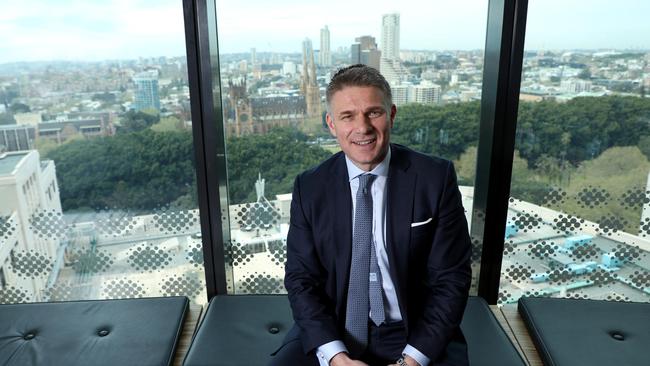
What should be the key issues in the next federal election campaign?
Tax policy, immigration policy, energy policy and industrial relations. Everyone understands what the challenges are but the business community needs policy clarity so informed capital investment decisions can be made. The economic backdrop has become more challenging. As a result, the consequences of poor policy decisions have the potential to create major economic challenges for Australia’s future.
What use are you making of customer a company data and how are you collecting it?
From our clients’ standpoint, the possibilities of harnessing data are endless. As examples of this, we are helping pension funds and asset owners use data to analyse and power long-term investment returns. We are also partnering with our clients to help them manage data quickly, accurately and to create efficiencies through managing multiple data sources.
What are the key challenges for your company next year?
There are several external events next year which have the potential to affect our clients and us, ranging from potential regulatory changes to macro-economic uncertainty arising from trade issues to Brexit. In addition, competition across all our businesses remains robust, as does the competition for talent. Nevertheless, we continue to see an opportunity to grow all our businesses in 2019.
How can big business regain community trust?
It’s really simple – building trust is about always “doing the right thing”. It’s about earning trust every day in every community around the world. While the primary goal of any business is to create shareholder value, that’s not possible over the longer term if, among many things, it’s not being a good citizen in the community.
What cost pressures are hitting your company? How are they being offset and do you see any pressure to lift wages? If so how much?
Key cost pressures relate to retaining our employees and increasing regulatory and compliance costs. While we forecast modest wages growth by the end of 2019, the broad economy needs to run well above trend for a very long period to deliver a sustained and broad lift in wages growth. We continue to be disciplined in managing our expense base, in particular through automation and efficiency initiatives, so that we can continue to invest in our people and technology.
-
Richard Vincent | Australian Pharmaceutical Industries
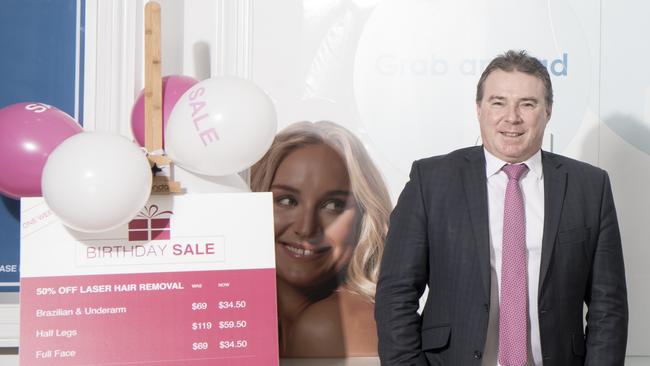
What should be the key issues in the next federal election campaign ? .
We’ve got to end the short-termism we take to nation building. federal Parliament needs to deliver certainty on policies to guarantee energy security and reduce costs. The political impasse has already caused unnecessary financial stress to consumers - and many businesses – and delayed much needed investment in the sector. I’d like to see a major commitment by the federal government to take a lead in co-investing in infrastructure development to allow continued sustainable population growth. Also, we are already a relatively high-cost manufacturing nation and so we must be early adopters of new technology, particularly AI, if we are to remain competitive. That means re-engineering our education system, re-skilling many in the existing workforce and making us more competitive in sectors like services and agriculture. So, now more than ever, we need stable political leadership to help us navigate through these very serious challenges.
What use are you making of customer and company data and how are you collecting it?
In Priceline Sister Club, we have one of the country’s most popular and successful loyalty programs. We’re planning to make investments to help ensure that we deliver more relevant personalised communications to our members. At a corporate level, we’re seeking to extract data that identifies where we can make changes to drive maximum efficiencies.
What are the key challenges for your company next year?
We expect retail conditions to remain challenging. So we have an ongoing process of re-engineering and streamlining the business to ensure we operate more efficiently. At a retail level, we’re investing in a range of initiatives that mean we have a genuine point of difference to offer Australian women. For example, that entails having a wider range of exclusive beauty products and innovative health services. We recently purchased Clearskincare Clinics and we have a significant opportunity to grow that business in coming years.
How can big business regain community trust ?
By putting in place the right leadership, supported with governance structures and cultural change that is necessary to eradicate the practices that have so infuriated the community. And be transparent in doing so.
What cost pressures are hitting your company? How are they being offset and do you see any pressure to lift wages? If so how much?
Key issues for us are retail rental rates that have risen out of sync with the retail spend and the fact that general costs such as energy continue to rise. While our costs are going up, revenue is under pressure and that means we have to take measures to make wholesaling of medicine more efficient. We have to work closely with Government to make sure that it implements future reforms that allow the full line wholesalers to continue to deliver on the Government’s commitment to have equal access to vital medicines, irrespective of where in Australia people live. Our people are paid fairly and we aren’t under undue pressure to lift wages.
-
Alison Watkins | Coca-Cola Amatil

What should be the key issues in the next federal election campaign?
The principal issue has to be the ability to deliver policy consistency. As a major Australian manufacturer, we make investment decisions on a 10-15-year timetable. So, we need to trust that the government policies and frameworks of today will be kept in place long enough to bear fruit. This used to be the case in Australia, before the current trend of leadership changes and policy rethinks. It’s a worrying trend when the last time a Prime Minister served a full term was more than a decade ago. The public mood seems to be in favour of policy and leadership stability. That’s certainly the view of business as well.
I’d like to see a greater focus on energy policy.
Energy prices are big issue for Amatil – we’re a major energy user in our beverages operations and in our fruit processing company SPC. I might not reveal the exact numbers, but we do remain firmly focused on reducing energy bills through operational efficiencies, commercial solutions in renewables and partnerships with other companies. From our point of view, it was disappointing that the federal Government did not proceed with the National Energy Guarantee, and that there’s been little action on the mid-year ACCC report on energy reform. I think all Australians would like to see measures to better balance energy export opportunity and competitive domestic pricing, as well as support for concepts like buyer groups which can deliver solid commercial outcomes. For our part we’re involved in a substantial Power Purchase Agreement (PPA) with Telstra, the University of Melbourne and ANZ Bank, to purchase credits from Stage One of the Murra Warra Wind Farm near Horsham. This is a good example of how business can take a leadership role.
Another issue is tax reform. There was some progress on taxes in this current term, but whoever wins the election should revisit the issue. The reality is Australia’s business tax rates are high compared to the OECD average and those of most trading partners. Our 30 per cent rate was set in 2006 and is out of step with an Asia-Pacific average of 21 per cent. Last Christmas, the federal Treasury warned that US tax reforms had the potential to make Australia’s corporate tax rates “increasingly uncompetitive.” Since then those US reforms became reality. The reality is that lower taxes make Australia more competitive – that matters when businesses are deciding whether to invest capital in Australia and it also matters for Australian businesses trying to develop export markets. We applauded the federal government’s actions on small business tax cuts, but tax competitiveness is still needed for all companies across the supply chain, from primary suppliers to manufacturers to retailers. It’s arbitrary to segregate larger businesses from small businesses – we’re a large business for example, with many small suppliers and customers.
What use are you making of customer and company data and how are you collecting it?
Data analytics are an absolute must for all businesses, especially for customer-oriented companies that need to anticipate future consumer demand. We collect a wide range of data from our own records of sales and deliveries to customers, and from the hundreds of thousands of individual conversations between sales and distribution teams and the nation’s retailers, café owners, bar owners, service station and convenience store managers, and grocers. We use this to help understand consumer trends, and to pass suggestions back to customers so they can optimise their stores and build business opportunity.
So it’s a two-way street: we get credible intelligence on how our brands are perceived and purchased, and we help our customer grow their own businesses with what we learn.
We also analyse the wealth of publicly available domestic and international beverage industry data, as a useful pointer to where our markets might be heading. We also have access to global sales data and predictions through our brand partners, in particular The Coca-Cola Company. Of course, no two territories are the same, but there’s usually some interesting trends.
What are the key challenges for your company next year?
We’re in a transition year in our Australian and Indonesian businesses, and we’ll continue to test ourselves to deliver our growth plans in those markets. We’ll also invest in our Australian Beverages team to put more feet on the street in 2019. Our aim is to supply the customer and consumer with what they want, when and where they want it – we have a world-class team delivering this now, and we’ll build on that next year.
We will also continue to work closely with The Coca-Cola Company on wellbeing. Recently we made two big commitments – a 10 per cent reduction in sugar across our portfolio of sales by 2020 in Australia and New Zealand, and a net 20 per cent reduction by 2025 in Australia. We’ve already made a 5.3 per cent reduction locally, and we’re on track to meet these overall targets in both countries.
We’ve made a lot of progress in recent years. For example, the sugar content in some Deep Spring variants has been reduced by 25 per cent since 2015; Powerade ION4 is down 20 per cent, Sprite down 15 per cent, and we’ve distributed great new low-and no-sugar options like Coca-Cola No Sugar. We’ve also expanded our low- and no-sugar range through investments by us or our brand partners in Mojo and the Made Group
Getting to a 20 per cent sugar reduction by 2025 is not going to be easy, but it’s a good target and builds on where the consumer wants us to go.
An additional challenge in 2019 will be meeting our responsibilities on environmental sustainability, and especially plastics. Plastic is ubiquitous in waste streams and in the natural and marine environment. The presence of plastics in the oceans has given rise to some alarming reports of risks to health. We, all of us, face the challenge of turning this around.
We’re also keen to continue the debate on the respective roles of government, business and the community in sustainability. Lasting solutions will depend on a genuine joint commitment from these three sectors.
How can big business regain community trust?
I think it’s not just business. The lack of trust in government, business, the media and even NGO’s is a serious issue. According to the 2018 Edelman Index, Australia is in the bottom quartile of trust.
I think people recognise that business is central to job creation and prosperity, but there’s a feeling that prosperity is not being shared around and questioning therefore as to whether the disruption is worth the extra prosperity. That’s especially the case where business decisions affect specific communities, for example when plants close, or jobs relocate.
Generally speaking people have a high level of trust in their own employer, it’s just big business in general they don’t trust. People also expect CEOs to lead and speak up on social issues – especially with a political vacuum.
So, there’s a clear opportunity for us to build on the confidence of our own employees and play a stronger leadership role rather than expecting the government to do this. This means paying close attention to how we are bringing our people and our communities along, including giving outstanding support to our people who are or who might be affected by change through retraining or other opportunities.
I think it’s about balancing the interests of stakeholders in a way which delivers for today and also serves the interests of a strong tomorrow. I don’t think it’s a case of either-or – that is it’s not shareholder interests versus other stakeholders. It is “and” – making decisions which preserve or strengthen our social license to operate are very much in shareholders’ interests.
What cost pressures are hitting your company? How are they being offset and do you see any pressure to lift wages – if so how much?
As we said at our recent Investor Day, there has been an increase in 2018 in both aluminium and PET prices. Consistent with our policy we’re fully hedged for aluminium in 2018 and around 70 per cent hedged for 2019. For PET resin however given that previously there was no hedging market for this commodity we were not hedged for FY18 and experienced a 25 per cent increase in the cost of PET resin in Australia. However, there have been changes in the availability of hedging products for PET and we now have 45 per cent of our forecast PET requirements for 2019 hedged. Sugar costs have been in decline in FY18. Overall, commodities in Australia in 2018 will end up being around 2 per cent more than 2017 (in Australian dollars) and, with the hedges we already have in place and assuming market rates continue, commodities are expected to increase between 2-3 per cent in 2019. Around Australia, real wages have been fairly steady for some years. On a nationwide basis I think that will continue in 2019.
-
Shemara Wikramanayake | Macquarie Group
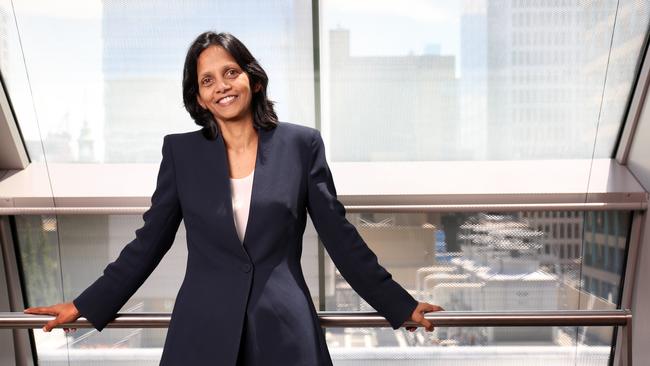
What should be the key issues in the next federal election campaign?
There are some important issues that government is working through now, one theme is population growth, which is a key driver of economic activity in Australia and is closely correlated with robust government support of infrastructure spending in coming years. Under all of the scenarios the ABS outlined in its population report released last month, Australia’s population will increase substantially. So infrastructure, and particularly resilient urban infrastructure, is going to be key to national prosperity during the medium and the long term. We see our role at Macquarie to work hard to ensure we can match the significant pool of domestic and global savings looking to invest in Australia with the right infrastructure opportunities. Another issue which is firmly on the political agenda is policy certainty. Australia is in a position where international investors remain favourably disposed to our rule of law and stable democracy despite what is seen as an historically unusual number of leadership changes over recent years. So be it a renewable project in Western Australian or a new school in the ACT, a reliable regulatory framework gives institutional investors the confidence to commit capital over the long term. Lastly, and arguably the most important area for this country, is Australia’s engagement with the global economy. Australia is a small open economy which has benefited enormously from our relationships with both the Asian region and broader global economy. For our future prosperity it is important that we continue to support a global trading system which is both rules-based and open.
What use are you making of customer and company data and how are you collecting it?
In collecting customer data from our retail clients, intermediaries and institutions to whom we provide products and services, our focus is to enhance client experience. Using this data with our client’s permission, we provide a long list of value-added services including digital banking for retail and SME banking clients, digital wealth management, data feeds to financial intermediary and SME systems to help them service their own clients, customised reporting, client alerts, and industry specific benchmarking reports. Our retail business is also currently pioneering open banking with a live capability to provide a client’s data, once they have given consent, to a number of fintech and established financial services providers to allow the provider to deliver services direct to that client.
What are the key challenges for your company next year?
I think the diversity of our businesses across market sectors and across geographies is key in not only driving growth but in ensuring that as an organisation we are resilient during all market conditions. This diversity is something which is driven by our people on the ground who are making the decisions on where to pull back, where to allocate additional resources and how to constantly steer the direction of their businesses. In addition, maintaining the diversity of our people and their diversity of thought in a competitive market for talent is equally important in ensuring we get the best results, be it in solving problems for our clients or meeting the challenges rapidly changing markets around the world.
How can big business regain community trust?
There is no doubt that the expectations regarding business standards have risen and that companies are required to understand not only what is legally required of them but also where public expectations sit. This is an ongoing process and the public does not accept companies falling short of these expectations. Companies and their leaders also have a responsibility in this changing environment to tell their positive story, particularly in terms of the ways in which they improve the communities of which they are a part by driving long-term outcomes.
What cost pressures are hitting your company? How are they being offset and do you see any pressure to lift wages? If so how much?
Operating expenses: generally speaking, we are seeing these move in line with increased business activity. Pressure to lift wages: our approach to remuneration is characterised by our emphasis on performance-based remuneration. So we have comparatively lower fixed remuneration and a profit-sharing system based on realised after-tax profits. To provide an example, our total compensation to all of our staff worldwide increased by 2 per cent in our last financial year.
-
Gary Wingrove | KPMG
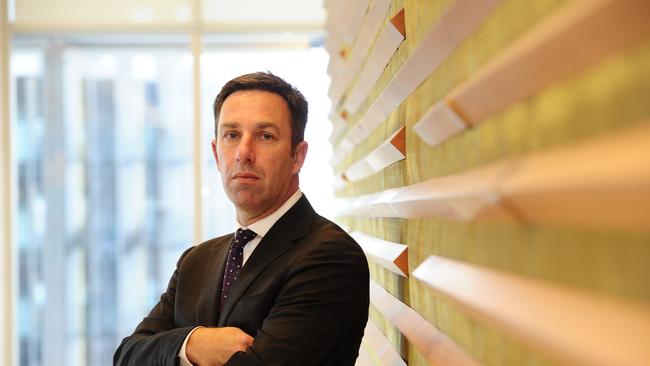
What should be the key issues in the next federal election campaign?
Australian business leaders are concerned with growing polarisation and the difficulty of gaining support for complex reforms. The important thing is for all parties to offer a well-rounded, evidence-based policy platform that is capable to of continuing to strengthen the Australian economy.
What use are you making of customer and company data and how are you collecting it?
We will continue to invest strongly in data-driven tech, as it opens tremendous potential. Game-changing innovations like machine learning and AI are fuelled by data. Our focus is on leveraging data to drive insight, efficiency and deliver real value to our clients. At the same time we are highly cognisant of the need to reinforce and build trust by enforcing strong policies around data governance and protection.
What is the key challenge for your company next year?
Like every forward-looking organisation, digital evolution is an ongoing and primary challenge. We know the number one priority of our clients is digitally transforming their businesses to drive growth, make productivity gains, and enhance customer experience through a disruptive landscape.
How can big business regain community trust?
Building genuine trust requires an adherence to core values – which cannot be compromised or siloed – and a focus on moving from the theoretical, to the practical. And any action short of genuine authenticity will be unsuccessful. Customers and citizens have unprecedented power and information through social media and the internet and can’t be “spun” over the long term. Businesses need to start giving as much thought to their customers, their employees, and their communities as they do their shareholders. The public perception is that businesses see increasing shareholder value as their first, second, and third priorities. In many cases this perception has been actively reinforced by businesses themselves – and this is unsustainable. Considered over the long term, the interests of all are aligned!
What cost pressures are hitting your company? How are they being offset and do you see any pressure to lift wages? if so how much?
While wages growth remains broadly soft across the whole of the economy, KPMG as a specialist professional services firm is in one of those pockets in the marketplace where the competition for talent for good people is seeing our wages bill growing at above national-average outcomes. Services such as digital transformation and big data are all experiencing strong client demand, which is also translating into higher people demand.
While KPMG is actively seeking ways to reduce our carbon footprint and minimise our reliance on electricity, every one of our people consumes electricity through their usage of computers, printers, lighting and air-conditioning. As the number of our people continue to grow, so does our gross electricity consumption and our electricity costs. We are therefore not only concerned about the direction of electricity policy from a client advisory perspective, but also, as a major direct consumer.
-
Zoe Yujnovich | Shell Australia
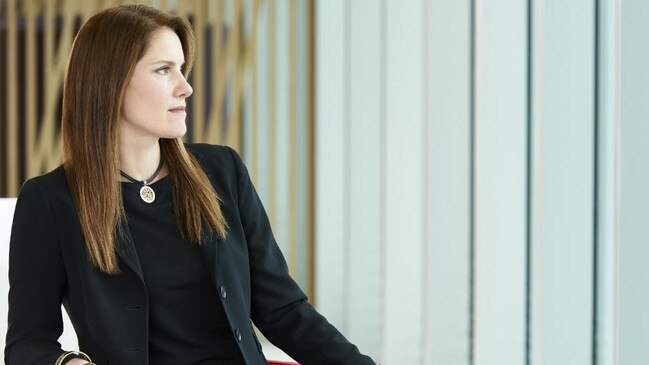
What should be the key issues in the next federal election campaign?
Stable fiscal settings are vital in giving investors the certainty needed to attract capital for Australian projects spanning multiple decades. This extends to the current policy discussion on tackling carbon emissions while also providing affordable energy to Australian families.
What use are you making of customer and company data and how are you collecting it?
We recognise that the way data is collected and stored is a topical issue and the responsibility of protecting customer data is one which Shell takes very seriously. In our LNG business, digitalisation has a huge role to play in maximising production, reducing equipment failure and improving our safety performance. For example, in our Queensland business we receive data directly from our wells and from drones, which is then used to analyse leading indicators of equipment failure, therefore allowing preventative maintenance. Shell also has a global obligation to comply with the new European Data Privacy Laws, which are the world’s toughest.
What are the key challenges for your company next year?
Working closely with local communities and ensuring the steady and safe operation of our Prelude floating LNG project, our QGC business in Queensland, Gorgon and the North West Shelf are top priorities. Also, a steady capital return from these assets is vital for Shell Australia to compete for the capital needed to invest in new projects which will help Shell thrive through the energy transition.
How can big business regain community trust?
Trust in big business is no different to trust with any other organisation. Australians want companies to offer services that improve their lives, at a price point that offers value and most importantly to keep the commitments they make. Gaining trust will ultimately come by doing what we say we would do, time and again. Whether it be reducing our carbon footprint, engaging with local communities or employing local workers, trust can only be gained by delivering on our promises.
What cost pressures are hitting your company? How are they being offset, and do you see any pressure to lift wages? If so how much?
Most resource projects in Australia are in remote locations that carry high structural costs, so this is a pressure we must always manage. Improvements in commodity prices lead to greater investment, that in turn places upward pressure on operating costs. We expect the skilled labour market to tighten over the next decade should a large number of these investments materialise. These increased costs will place pressure on marginal projects and will require innovation and productivity gains to be unlocked.




To join the conversation, please log in. Don't have an account? Register
Join the conversation, you are commenting as Logout